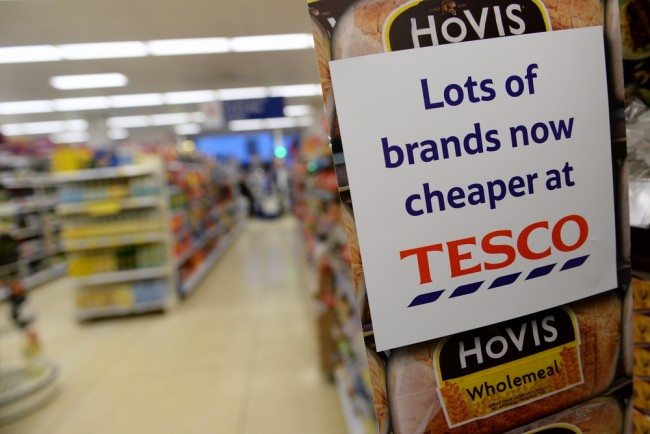Three former Tesco executives are to appear in crown court to face charges of fraud and false accounting in relation to a scandal at Britain’s biggest supermarket that left a black hole of up to £326m in its accounts, reports The Guardian.
Christopher Bush, the former managing director of Tesco UK, Carl Rogberg, the former finance director of Tesco UK, and John Scouler, the supermarket group’s former commercial director for food, will appear at Southwark crown court for a plea and case management hearing on Thursday.
The former Tesco bosses are all charged with one count of fraud by abuse of position and one count of false accounting. The three men could face up to 10 years in jail if found guilty of the fraud charge and seven years for false accounting.
They pleaded not guilty to the charges at a hearing at Westminster magistrates court last month.
The charges read out at the magistrates court alleged that as senior employees at the supermarket they had abused their positions for personal gain. The trio were accused of dishonestly falsifying Tesco’s digital accounting records and its draft interim accounts by the “inputting of and/or reliance upon commercial income figures which gave a false account of the financial position of Tesco”.
The Serious Fraud Office investigation into Tesco is ongoing and it is still possible that further individuals could face action. However, it is understood that the former chief executive Philip Clarke, who was questioned under caution by the SFO, will not be charged.
When the SFO announced it had charged the executives last month, Tesco said it continued to cooperate with the investigation. “The last two years have seen an extensive programme of change at Tesco, but given this is an ongoing legal matter, we are unable to provide any further comment at this time,” the company said.
The SFO launched a criminal investigation into accounting practices at Tesco in October 2014 after the company admitted it had overstated profits by £263m by incorrectly booking payments from suppliers. It later revised the overstatement up to £326m.


